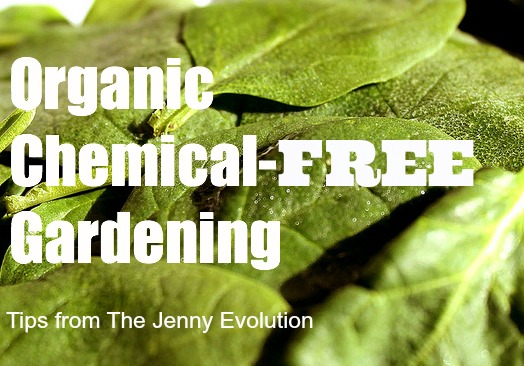Organic Chemical Free Gardening
Every year, thousand of chemicals are poured into the environment and millions of gallons of water are needlessly wasted. How? By growing plants. Sure, most of this is done by large agricultural producers, but some of it is still done in personal gardens. And that means that you can make a difference by changing your gardening practices. There are many agricultural producers who have done it, and you can use the same tricks to help your own garden, and the planet.
Pick appropriate plants. Not all plants are appropriate for the area you live in. While you might be able to control the temperature, humidity and rain conditions inside your house, you can’t do it out in the garden. If you pick appropriate plants for your area, you may be able to avoid using fertilizers and saving on water too. Research, what plants are native to your surrounding areas and try planting them in your own garden. Wildflowers, are just that, they can pretty much be left alone and will thrive in most areas.
Pick natural repelling plants. You don’t need to rely on poisons to keep away garden ruining pests. Many plants produce chemicals that repel these animals naturally. By putting them in or around you garden, you can keep your garden safe with little effort and no chemicals. Plus, you can pick parts of these plants and use them to make products to keep them away from you too.
If you don’t want to plant natural repellents in your garden, you can use them to spray your plants without harming them or adding artificial chemicals to your garden. Many herbs like hot pepper, vanilla, and lavender can help repel insects from your garden.
Pull weeds. We’re all looking for a quick and easy way to safely get rid of weeds without chemicals, but the good old fashioned way is still very effective. It you take time every day to pull the weeds you can find, you’ll only take a few minutes so it doesn’t seem like a lot of work. You can even get the kids involved, just be sure to do it properly so you don’t spread the seeds around. There are even some common weeds that are edible, just make sure there are no pesticides that could have gotten on them.
Crop rotation. Farmers all over the world use crop rotation to naturally fertilize plants. The concept is to change what crop you’re putting in a certain field each year. Plants use different nutrients and put other nutrients back into the soil. If you rotate crops that replace the nutrients the other plants use, you will have to fertilize the soil less.
You can use this same concept in your garden by planting different plants every year, or just rotating where you put specific plants in the garden.
So, you’ve made all these changes and are using a low-water, chemical free garden? Well, you still haven’t done the most important thing: pass it on! One garden can make a dent, but more can make a bigger difference. Tell your friends. Teach your kids. You can even visit their school and teach your kids’ friends! Every little bit helps make a better world.


We just treated our lawn with humus (organic lawn treatment not Middle Eastern dip). It will improve the soil condition encouraging microorganisms that in turn will help the grass to thrive. No petrochemical fertilizer running off into the gutter to end up in the watershed.
The rest of our yard is planted with native plants and edibles. The birds and especially the bees love the native flowers, then they stop by and pollinize my edibles (bees) and make a snack of the “harmful” insects that like to destroy my garden (blanket – blank hornworms!)
The only thing I would add to your list is COMPOST! plenty of instructions online or contact your local gardening extension for more information. Less waste in the landfill, plus a yummy treat for all of your plants. It is so easy, I promise! If you have kids, let them take ownership of it. Great science lesson.
Ha! Glad you clarified the humus part. I know composting is great… I just haven’t made that leap yet. We do get coffee grounds and whatnot from the local Starbucks and add that into our garden.
Hate to say this, but I copied and pasted this and will be using this as an assignment for my students in science.
Thanks
Careful of copyright! Thanks for sharing with your students. Please be sure it is attributed to my site 🙂
Thank you for posting this for us, all great tips for gardening.
I really enjoyed this article as I am getting into healthy eating and exercise. Thank you for the tips
Glad you’re joining me on your journey to getting healthier 🙂
These are really great tips! I especially like the one about weeding – it’s definitely my least favorite thing to do but sometimes doing things the old-fashioned way is the best way. I’m also learning about permaculture which is using the land’s natural landscape to most effectively plant and grow.
Last year I started using weeding time as workout time… and it got me outside!
Thought I would share this article about organic control of hornworms and grubs:
http://matthewgustke.com/2014/04/02/organically-controlling-tomato-hornworms-white-grubs/